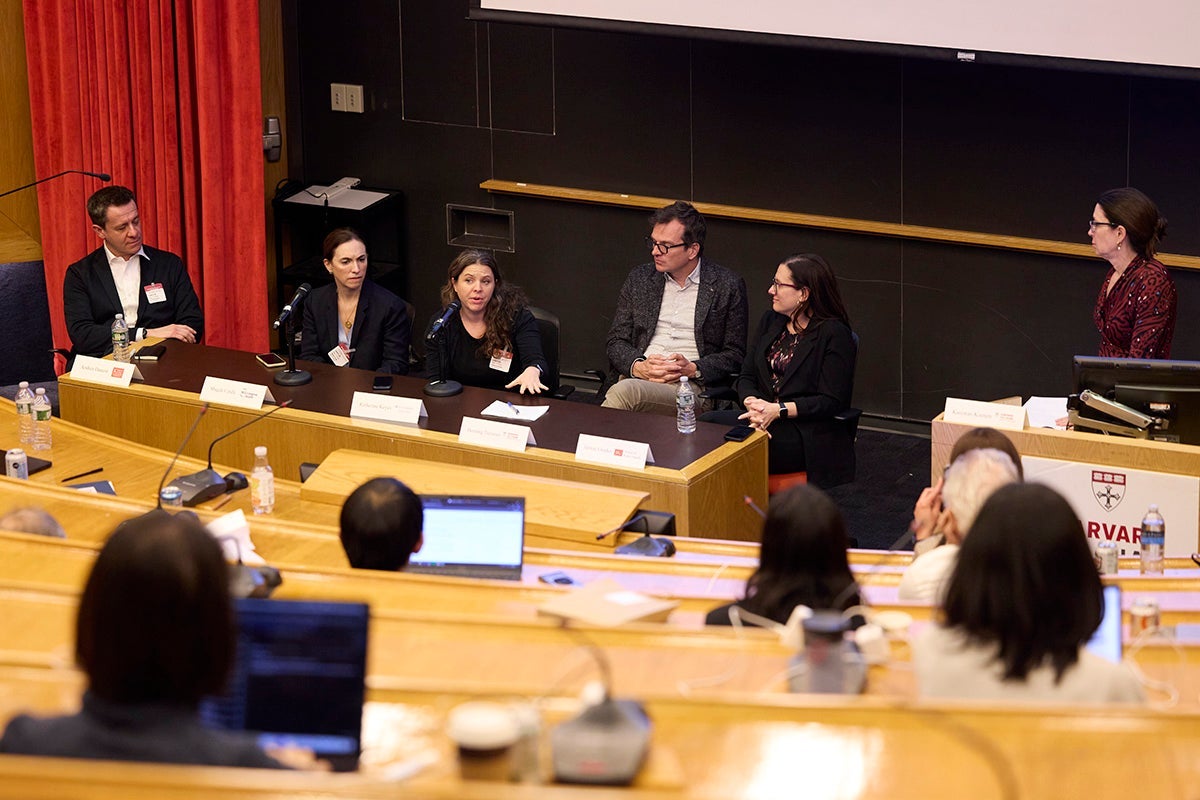Investing in children’s ‘next 1,000 days’

December 2, 2024 — Aisha Yousafzai, professor of child development and health at Harvard T.H. Chan School of Public Health, is a member of the steering committee for a new Lancet series exploring the importance of nurturing environments for children’s development in the “next 1,000 days” (ages two to five). She also was an author on the first paper in the series, which called for increased access to quality preschool programs. She recently spoke about the series’ findings.

Q: Why did you choose to focus on children’s next 1,000 days?
A: The reason we decided it was timely for a new review of the evidence was twofold. One is that for children born today, we know that there is incredible inequity both between countries and within countries. And there are a whole host of global challenges that are going to impact the environments that children are growing up in, including climate change, economic crises, conflict, migration, mental health crises, and growing food insecurity.
The second reason is that in global health we have focused heavily on the first 1,000 days—the period from conception to age two, a period when children and their parents have regular contact with the health sector. But then there’s the period between ages two and five, before children are formally enrolled in school, when, in many parts of the world, they can almost become invisible.
Q: What are the papers’ key findings?
A: While home environments continue to be important in the next 1,000 days, children are also going to be increasingly exposed to environments outside of their home and within the community, including early childhood care and education programs. In paper one, we found that these programs consistently benefited children’s cognitive and behavioral development and health outcomes. But despite these benefits, there is low participation. Comparing the U.S. and parts of Europe to low- and middle-income countries (LMICs), the proportion of children participating drops from 80% to as low as 20%.
So, we need to improve access. We need to improve equity. And it’s not enough just to get children into these spaces, the programs need to be high quality.
In paper two, we show the cost of inaction. The average cost of providing early childhood care and education services for young children in LMICs is just over $337 per child per year. That is around 0.5 percent of the GDP of most countries in the LMIC group. In a resource-constrained environment, that investment is going to be a challenge. But we know that the potential benefits of these programs are on average 8–19 times larger than the cost.
Q: What impact do you hope that the series will have?
Previous series in the Lancet drawing attention to early childhood development during the first 1,000 days in LMICs were successful in moving research, policies, and programs forward. The first was in 2007 when I was early on in my career. At the time, there were fewer than 20 robust randomized trials related to children’s development. Now, we have more than 120.
In addition, the United Nations’ Sustainable Development Goals included target 4.2, which calls for every child to have access to quality early development, care, and education programs. We have funders that are supporting more programs specifically in the early childhood space. And finally, through the World Health Organization and partners, we have the Nurturing Care Framework, which provides an evidence-based road map for ministries of health to strengthen their support of not just children’s survival, but children’s development.
What we hope this series will do is draw more attention to the fact that the job doesn’t stop at age two and encourage discussion around how we can make stronger multisectoral partnerships to realistically deliver on children’s development and health needs during both the first and next 1,000 days of their lives.
[Harvard Chan School’s Christopher Sudfeld and Joshua Jeong were also co-authors on the series’ first paper.]
Photos: iStock / Syed Ali; Aisha Yousafzai: Kent Dayton


